
Co-organized by College of Business and Centre for Chaos and Complex Networks
Co-organized by College of Business and Centre for Chaos and Complex Networks
Disruptions caused by tropical storm Hato notwithstanding, the workshop schedules remain UNCHANGED.
| Time and Venue | |
|---|---|
|
Aug 24 (Thu), 09:00-18:00 Aug 25 (Fri), 09:00-12:00 |
|
|
Connie Fan Multi-media Conference Room,
4/F, Cheng Yick-chi Building, City University of Hong Kong |
|
| Register Now Schedules | |
|---|---|
| Aug 24 | |
| 09:00 - 09:15 | Opening |
| Keynote - Chaired by Professor David D. YAO | |
| 09:15 - 09:45 | Professor Yu-Chi (Larry) HO |
| 09:45 - 10:00 | Break |
| Session I - Chaired by Professor Edwin K. P. CHONG | |
| 10:00 - 10:30 | Professor Christos G. CASSANDRAS |
| 10:30 - 11:00 | Professor Xiren CAO |
| 11:00 - 11:15 | Break |
| Session II - Chaired by Professor Xiren CAO | |
| 11:15 - 11:45 | Professor Houmin YAN |
| 11:45 - 12:15 | Professor Jianqiang HU |
| 12:15 - 14:00 | Lunch (for speakers and other invited guests) |
| Session III - Chaired by Professor Houmin YAN | |
| 14:00 - 14:30 | Professor Edwin K. P. CHONG |
| 14:30 - 15:00 | Professor Guanrong CHEN |
| 15:00 - 15:30 | Professor Jeff HONG |
| 15:30 - 16:00 | Break |
| Session IV - Chaired by Dr. Jie SONG | |
| 16:00 - 16:30 | Professor Leyuan SHI |
| 16:30 - 17:00 | Professor Chun-Hung CHEN |
| 17:00 - 17:30 | Dr. Siyang GAO |
| 17:30 - 18:00 | Dr. Si ZHANG |
| 18:30 - 21:00 | Banquet (for speakers and other invited guests) |
| Aug 25 | |
| Session V - Chaired by Professor Guanrong CHEN | |
| 09:00 - 09:30 | Professor Jie HUANG |
| 09:30 - 10:00 | Professor Qianchuan ZHAO |
| 10:00 - 10:30 | Break |
| Session VI - Chaired by Professor Jeff HONG | |
| 10:30 - 11:00 | Professor Lucy PAO |
| 11:00 - 11:30 | Professor David D. YAO |
| 12:00 - 13:30 | Lunch (for speakers and other invited guests) |
Keynote Speaker
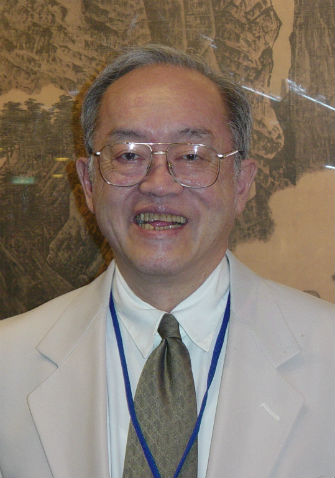
Professor Yu-Chi (Larry) HO
School of Engineering and Applied Sciences, Harvard University, US
Yu-Chi Ho received his S.B. and S.M. degrees in Electrical Engineering from M.I.T. and his Ph.D. in Applied Mathematics from Harvard University. Since 1969 he has been Gordon McKay Professor of Engineering and Applied Mathematics. In 1988, he was appointed to the T. Jefferson Coolidge Chair in Applied Mathematics and Gordon McKay Professor of Systems Engineering at Harvard and as visiting professor to the Cockrell Family Regent's Chair in Engineering at the University of Texas, Austin. In 2001, he retired from teaching duties at Harvard and became a Research Professor (2001-2006), Professor Emeritus (2007-date) and also was appointed to be a chair professor and chief scientist (part time), at the Center for Intelligent and Networked Systems (CFINS), Department of Automation, Tsinghua University, Beijing China. Since 2007 he has also begun blogging regularly on Science Net China and his book of blog articles 2007-2009 has just been published by Tsin ghua University Press.
He has published over 140 articles and six books, one of which (co-authored with A.E. Bryson, Jr.) has been translated into both Russian and Chinese and made the list of Citation Classics as one of the most referenced works on the subject of optimal control. He is on the editorial boards of several international journals and is the founding editor of the international Journal on Discrete Event Dynamic Systems. He is the recipient of various fellowships and awards including the Guggenheim (1970), the IEEE Field Award for Control Engineering and Science (1989), the Chiang Technology Achievement Award (1993), the American Automatic Control Council Bellman Control Heritage Award (1999), the ASME Rufus Oldenburger Award (1999), and the Isaacs Award from the International Society of Dynamic Games (2004). He is an IEEE Life Fellow and an INFORMS Inaugural Fellow, a Distinguished Member of the IEEE Control Systems Society, a member of the U.S. National Academy of Engineering and an elected foreign member of the Chinese Academy of Engineering and the Chinese Academy of Sciences. In addition to services on various governmental and industrial panels, and professional society administrative bodies, he was the program chairman for the IEEE Conference on Decision and Control 1972, the general chairman of the IEEE Robotics and Automation Conference 1987, President of the IEEE Robotics & Automation Society in 1988.
Living My American Dream - A Retrospective on an un-American Life
Speakers
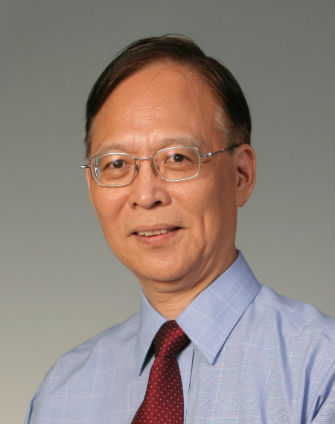
Professor Xiren CAO
Department of Automation, Shanghai Jiao Tong University, China
Xi-Ren Cao received the M.S. and Ph.D. degrees from Harvard University, in 1981 and 1984, respectively, where he was a research fellow from 1984 to 1986. He then worked as a consultant engineer/engineering manager at Digital Equipment Corporation, Massachusetts, U.S.A, until October 1993. Then he joined the Hong Kong University of Science and Technology (HKUST), where he is currently chair professor, director of the Research Center for Networking. He held visiting positions at Harvard University, University of Massachusetts at Amherst, AT&T Labs, University of Maryland at College Park, University of Notre Dame, Tsinghua University, University of Science and Technology of China, and other universities.
Professor Cao owns three patents in data- and tele- communications and published three books in the area of stochastic learning and optimization and discrete event dynamic systems: “Stochastic Learning and Optimization - A Sensitivity-Based Approach,” Springer, 2007, “Realization Probabilities - the Dynamics of Queuing Systems,” Springer Verlag, 1994, and “Perturbation Analysis of Discrete-Event Dynamic Systems,” Kluwer Academic Publishers, 1991 (co-authored with Y. C. Ho). He received the Outstanding Transactions Paper Award from the IEEE Control System Society in 1987, the Outstanding Publication Award from the Institution of Management Science in 1990, and the Outstanding Service Award from IFAC in 2008. He was elected as a Fellow of IEEE in 1995, and as a Fellow of IFAC in 2008. He is Editor-in-Chief of Discrete Event Dynamic Systems: Theory and Applications, Associate Editor at Large of IEEE Transactions of Automatic Control, and he served as the Chairman of IEEE Fellow Evaluation Committee of IEEE Control System Society (2005-2007), and member on the Board of Governors of IEEE Control Systems Society. He is the chairman of IFAC Coordinating Committee on Systems and Signals (2206-2011) and on the Technical Board of IFAC, He is/was associate editor of a number of international journals and chairman of a few technical committees of international professional societies. His current research areas include discrete event dynamic systems, stochastic learning and optimisation, performance analysis of communication systems, signal processing, and financial engineering.
From Perturbation Analysis to a New Paradigm of Optimization - the Relative optimization Theory
The essential idea of perturbation analysis is that by analyzing a system with a parameter at one value, we may obtain the performance of the system with a slightly changed value, and hence know which direction to go to improve the performance. This idea can be extended to the general performance optimization theory: Under some conditions, by analyzing a system under one policy, we may determine another policy with a better performance. We show that this simple idea is generally applicable and can solve problems that are not amenable to dynamic programming; new insights can be obtained. These include time-non-homogeneous Markov systems (the “under selectivity” issue can be easily solved) and diffusion processes with non-smooth value functions (no viscosity solution is needed). This approach is simply based on relative values obtained by comparing any two states or policies, and hence is named as relative optimization. Examples will be given to illustrate the ideas.
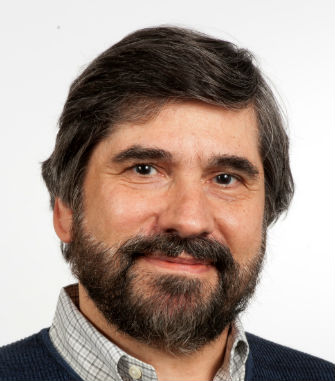
Professor Christos G. CASSANDRAS
Division of Systems Engineering, Department of Electrical and Computer Engineering, and
Center for Information and Systems Engineering (CISE), Boston University, US
Christos G. Cassandras is Distinguished Professor of Engineering at Boston University. He is Head of the Division of Systems Engineering, Professor of Electrical and Computer Engineering, and co-founder of Boston University’s Center for Information and Systems Engineering (CISE). He received degrees from Yale University, Stanford University, and Harvard University. In 1982-84 he was with ITP Boston, Inc. where he worked on the design of automated manufacturing systems. In 1984-1996 he was a faculty member at the Department of Electrical and Computer Engineering, University of Massachusetts/Amherst. He specializes in the areas of discrete event and hybrid systems, cooperative control, stochastic optimization, and computer simulation, with applications to computer and sensor networks, manufacturing systems, and transportation systems. He has published about 400 refereed papers in these areas, and six books. In addition to his academic activities, he has worked extensively with industrial organizations on various systems integration projects and the development of decision-support software. He has most recently collaborated with The MathWorks, Inc. in the development of the discrete event and hybrid system simulator SimEvents.
THE PERTURBATION ANALYSIS STORY: 1979 - 2017
The history of Perturbation Analysis (PA) originated with a solution of a long-standing problem in the late 1970s and continues today with the control and optimization of Hybrid Systems and the emergence of event-driven control methods. We will review the origins of the PA theory and how it became part of a broader framework for models, control and optimization of Discrete Event Dynamic Systems (DEDS). We will discuss the theoretical underpinnings of Infinitesimal Perturbation Analysis (IPA) as a data-driven stochastic gradient estimation method and how it has been applied over the past few decades to a variety of engineering areas ranging from manufacturing and communication networks to multi-agent systems and traffic control. We will also explain how IPA has evolved beyond DEDS and now provides a framework for control and optimization of Hybrid Systems and, more generally, event-driven methodologies.
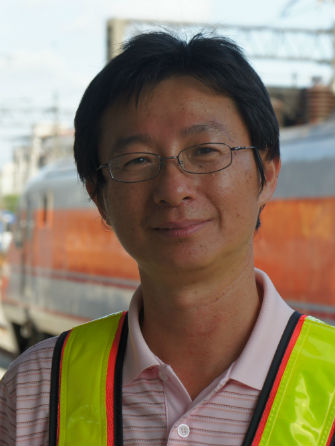
Professor Chun-Hung CHEN
Department of Systems Engineering & Operations Research, George Mason University, US
Chun-Hung Chen received his Ph.D. degree from Harvard University in 1994. He is currently a Professor at George Mason University. Dr. Chen was an Assistant Professor at the University of Pennsylvania before joining GMU. He was also a professor with National Taiwan University (Electrical Eng. and Industrial Eng.) from 2011-14. Dr. Chen was awarded with “National Thousand Talents” (国家千人) in 2011 (via Peking University). Sponsored by NSF, NIH, DOE, NASA, FAA, Missile Defense Agency, and Air Force in US, he has worked on the development of very efficient methodology for simulation-based decision making and its applications. He has served as a Department Editor for IIE Transactions, Department Editor for Asia-Pacific Journal of Operational Research, Associate Editor for IEEE Transactions on Automation Science and Engineering, Associate Editor for IEEE Transactions on Automatic Control, Area Editor for Journal of Simulation Modeling Practice and Theory, Advisory Editor for International Journal of Simulation and Process Modeling, and Advisory Editor for Journal of Traffic and Transportation Engineering. Dr. Chen is the author of two books, including a best seller: “Stochastic Simulation Optimization: An Optimal Computing Budget Allocation”. He is an IEEE Fellow.
Simulation Optimization for Discrete-event Systems: Ordinal Optimization and Beyond
Stochastic simulation is a powerful modeling and software tool for analyzing modern complex systems. Optimization involving millions or even billions of decision variables and constraints has become possible with the advent of modern computing. The combination of these two successful paradigms has become dramatically powerful. Among the developments in stochastic simulation optimization, ordinal optimization (OO) is the last important techniques initially proposed and developed by Professor Y.-C. Ho and his team. OO has been explored by many researchers and has fruitful results. We will present the state-of-the-art and discusses some of the future research directions in this field. One example is Optimal Computing Budget Allocation (OCBA), initially developed by the speaker. Inspired by OO, which focuses on how to efficiently select a good enough design in a large-scale optimization problem, OCBA is a framework that aims to maximize the overall simulation or sampling efficiency for finding an optimal decision given a limited computing budget. OCBA carefully analyzes the trade-off between devoting computational effort on searching a large design space for new promising solutions versus determining more accurately which of the currently promising solutions is the best. Both OO and OCBA have been successfully used in many applications.
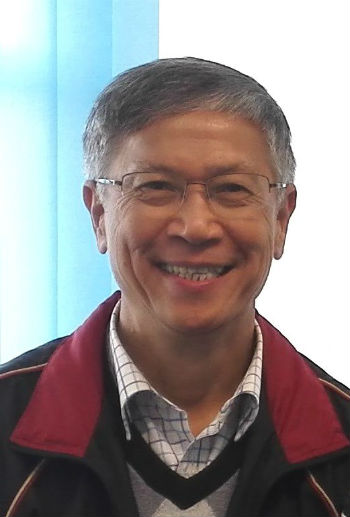
Professor Guanrong CHEN
Department of Electronic Engineering, City University of Hong Kong, Hong Kong
Professor Guanrong CHEN is a chair professor and the founding director of the Research Centre for Chaos and Complex Networks at City University of Hong Kong. He received the MS degree in computer science from Sun Yat-sen University, China in 1981 and the PhD degree in applied mathematics from Texas A&M University in 1987.
Pinning Control and Controllability of Complex Dynamical Networks
We introduce the notion of pinning control and discuss the complete state controllability of networked higher-dimensional linear time-invariant dynamical systems interconnected through directed and weighted higher-dimensional communications. We show how the network topology, node-system dynamics, external control inputs, and inner interactions together affects the controllability of such a complex network. We present precise necessary and sufficient conditions for the controllability of such a network in the most general topology.
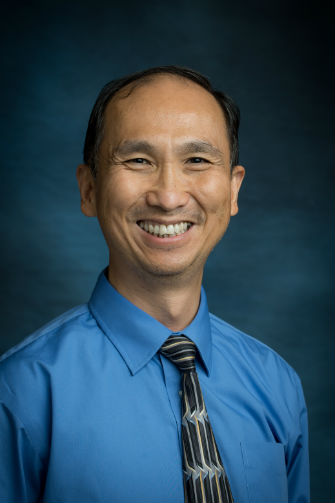
Professor Edwin K. P. CHONG
Department of Electrical and Computer Engineering and Department of Mathematics, Colorado State University, US
Edwin K. P. Chong received the B.E. degree with First Class Honors from the University of Adelaide, South Australia, in 1987; and the M.A. and Ph.D. degrees in 1989 and 1991, respectively, both from Princeton University, where he held an IBM Fellowship. He joined the School of Electrical and Computer Engineering at Purdue University in 1991. Since August 2001, he has been a Professor of Electrical and Computer Engineering and Professor of Mathematics at Colorado State University. He coauthored the best-selling book, An Introduction to Optimization (4th Edition, Wiley-Interscience, 2013). He received the NSF CAREER Award in 1995 and the ASEE Frederick Emmons Terman Award in 1998. He was a co-recipient of the 2004 Best Paper Award for a paper in the journal Computer Networks. In 2010, he received the IEEE Control Systems Society Distinguished Member Award.
Professor Chong is a Fellow of IEEE. He was the founding chairman of the IEEE Control Systems Society Technical Committee on Discrete Event Systems, and served as an IEEE Control Systems Society Distinguished Lecturer. He was a Senior Editor of the IEEE Transactions on Automatic Control until 2016. He was the General Chair for the 2011 Joint 50th IEEE Conference on Decision and Control and European Control Conference. He currently serves as President of the IEEE Control Systems Society.
Performance Guarantees for Approximate Dynamic Programming Schemes
We discuss an approach to obtaining performance guarantees for approximate dynamic programming schemes. The approach is based on bounds for string-submodular optimization problems, which provide performance guarantees for greedy strategies relative to the optimal objective function value. We show that for each approximate dynamic programming scheme, there is an optimization problem for which the scheme is a greedy strategy. This then allows us to apply the bounding results for greedy schemes in submodular optimization to obtain performance guarantees for approximate dynamic programming schemes.
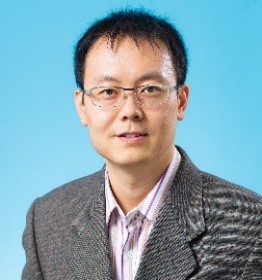
Dr. Siyang GAO
Department of Systems Engineering and Engineering Management, City University of Hong Kong, Hong Kong
Siyang Gao received the B.S. degree in Mathematics from Peking University, Beijing, China, in 2009, and the Ph.D. degree in Industrial Engineering from University of Wisconsin-Madison, Madison, WI, in 2014. Dr. Gao is an Assistant Professor with the Department of Systems Engineering and Engineering Management, City University of Hong Kong. His research is devoted to simulation-based optimization, global optimization and their applications in healthcare management. His work has appeared in Operations Research, IEEE Transactions on Automatic Control, Automatica, and etc. Dr. Gao is a member of INFORMS and IEEE.
An Optimal Opportunity Cost Selection Procedure
This study presents a new simulation budget allocation framework for the problem of selecting the best simulated design from a finite set of alternatives. The new framework is developed on the basis of general underlying distributions and a finite simulation budget. It adopts the expected opportunity cost (EOC) quality measure, which, compared to the traditional probability of correct selection (PCS) measure, penalizes a particularly bad choice more than a slightly incorrect selection, and is thus preferred by risk-neutral practitioners and decision makers. To this end, a closed-form approximation of EOC is established to formulate the budget allocation problem and derive the corresponding optimality conditions. A sequential budget allocation algorithm is the developed for implementation. The efficiency of the proposed method is illustrated via numerical experiments. This study also links the EOC and PCS-based budget allocation problems by showing that the two problems are asymptotically equivalent. This result, to some extent, explains the similarity in performance between the EOC and PCS allocation procedures observed in the literature.
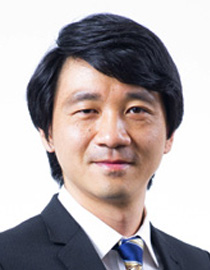
Professor Jeff HONG
College of Business, City University of Hong Kong, Hong Kong
Professor Jeff Hong is a Chair Professor of Management Sciences with a joint appointment with Department of Economics and Finance and Department of Management Sciences in College of Business at City University of Hong Kong (CityU). Before joining CityU, he was a Professor in Department of Industrial Engineering and Logistics Management at the Hong Kong University of Science and Technology (HKUST). Professor Hong’s research interests include stochastic optimization and simulation, financial engineering, and business analytics.
Earning and Learning with Varying Cost
The earning-and-learning problem refers to the profit maximization problem where one optimizes the profit by choosing a price and learns the demand at the same time. Traditionally, the cost is fixed and the problem may be formulated as a multi armed bandit problem, which is known to have an O(logT) lower bound on the expected regret, where T is the number of periods. In this paper, we consider the case where the cost changes over periods. Then, the optimal pricing decision becomes a function of the cost. We propose an upper-confidence-bound type of algorithm to solve the problem. We find that, surprisingly, the expected regret may be bounded by a constant under certain conditions. This is a joint work with Ying Zhong and Guangwu Liu.
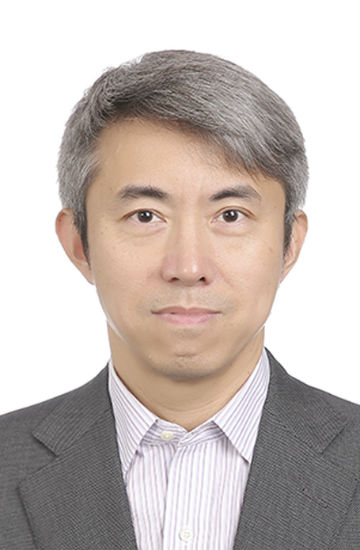
Professor Jianqiang HU
Department of Management Science, Fudan University, China
The Divergence of Stock Index Futures from Their Underlying Cash Values
Under the assumption of no arbitrage opportunities, the price of stock index futures should be equal to the spot price of the corresponding stock index, excluding capital costs, dividends, and trading costs. However, since the introduction of stock index futures in Chinese stock markets in 2010, the prices of stock index futures have consistently diverged from their theoretical values in a very significant way, especially in recent years. By using an equilibrium model, we show that this divergence may be due to various factors related to market efficiency, including trading restrictions and the change of margin requirements, which are further validated by our empirical results obtained from Chinese markets.
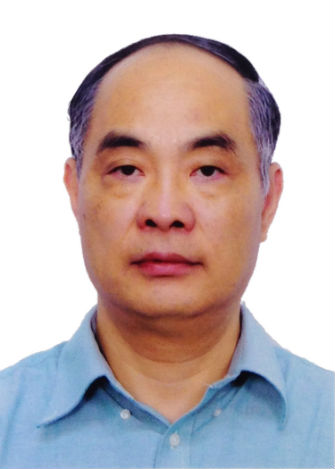
Professor Jie HUANG
Department of Mechanical and Automation Engineering, The Chinese University of Hong Kong, Hong Kong
Jie Huang studied at Fuzhou University (Diploma, 1980), Nanjing University of Science and Technology (Master, 1982), and the Johns Hopkins University (PhD, 1990), respectively. He is now Choh-Ming Li Professor of Mechanical and Automation Engineering and Chairman of the Department of Mechanical and Automation Engineering, the Chinese University of Hong Kong. His research interests include automatic control, robotics and automation, and guidance and control of flight vehicles. He is a Fellow of IEEE, IFAC, CAA, and HKIE.
An Adaptive Distributed Observer Approach to Cooperative Control of Multi-agent Systems
One of the distinguished features of the cooperative control of multi-agent systems is that the control law has to satisfy various communication constraints. A control law that satisfies the communication constraints is called a distributed control law. In this talk, we present a systematic framework for synthesizing a distributed control law for several leader-follower cooperative control problems. This framework consists of three steps. First, a purely decentralized control law is designed assuming no communication constraint exists. Second, in the presence of jointly connected communication constraints, an adaptive distributed observer for the leader system is designed that is able to provide each follower the estimation of the leader’s dynamics and the leader’s signal. Finally, a fully distributed control law is synthesized by composing the purely decentralized control law and the adaptive distributed observer. The effectiveness of this framework will be illustrated by some applications to several cooperative control problems of multi-agent systems such as the leader-following consensus problem, the cooperative output regulation problem, formation, rendezvous, and flocking.
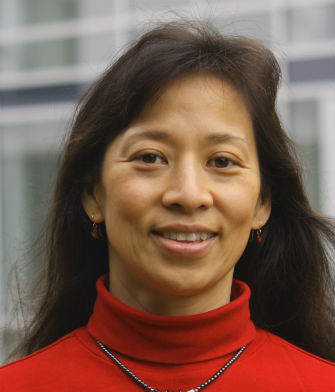
Professor Lucy PAO
Electrical, Computer, and Energy Engineering Department, University of Colorado Boulder, US
Lucy Pao is a Professor in the Electrical, Computer, and Energy Engineering Department at the University of Colorado Boulder in the USA. She has completed sabbaticals at Harvard University (2001-2002), the University of California, Berkeley (2008), the US National Renewable Energy Laboratory (2009), the Hanse-Wissenschaftskolleg Institute for Advanced Study in Delmenhorst, Germany (2016-2017) and the ForWind Center for Wind Energy Research at Oldenburg University (2016-2017). She earned B.S., M.S., and Ph.D. degrees in Electrical Engineering from Stanford University. Her research has primarily focused on combined feedforward and feedback control of flexible structures, with applications ranging from atomic force microscopy to disk drives to digital tape drives to megawatt wind turbines and wind farms. She is a Fellow of the International Federation of Automatic Control (IFAC) and the Institute of Electrical and Electronics Engineers (IEEE). Selected recent awards include the 2012 IEEE Control Systems Magazine Outstanding Paper Award (with K. Johnson), the 2015 Society for Industrial and Applied Mathematics (SIAM) Journal on Control and Optimization Best Paper Prize (with J. Marden and H. P. Young), the 2017 Control Engineering Practice Award from the American Automatic Control Council, and the Scientific Award 2017 from the European Academy of Wind Energy. Selected professional society activities include being a Fellow of the Renewable and Sustainable Energy Institute (2009-present), General Chair of the 2013 American Control Conference, member of the IEEE Control Systems Society (CSS) Board of Governors (2011-2013 and 2015), IEEE CSS Fellow Nominations Chair (2016-present), and member of the IFAC Executive Board (2017-2020).
Challenges and Opportunities in Integrating Large Amounts of Wind and Solar Energy into Utility Grids
Wind and solar energy are recognized as environmentally friendly sources of electrical energy. As they are becoming more cost effective, worldwide installations of wind and solar power have been increasing. However, science and engineering challenges still exist. It is commonly reported that the variability of wind speeds and solar irradiance are major obstacles to integrating large amounts of wind and solar energy on the utility grid. Wind and solar variabilities create challenges because power supply and demand must match in order to maintain a constant utility grid frequency. In this talk, we will first provide an overview of the growth of wind and solar energy worldwide and briefly review wind and solar energy technologies. The operation of the utility grid will then be outlined, where we will discuss the importance of preserving grid reliability through controlling the grid frequency (which is a measure of the balance between electrical generation and load). We will point out the challenges in integrating large amounts of wind and solar energy, and then outline some novel ideas that are being explored to address the challenges. In particular, wind turbines and solar panels (and in turn wind and solar farms) can be controlled to help stabilize and balance the frequency of the utility grid. Results of simulation studies as well as experimental field tests will be presented to show the promise of the techniques being developed. We shall close by discussing further research avenues to enable much higher wind and solar energy penetrations while simultaneously maintaining and possibly increasing the reliability of the utility grid.
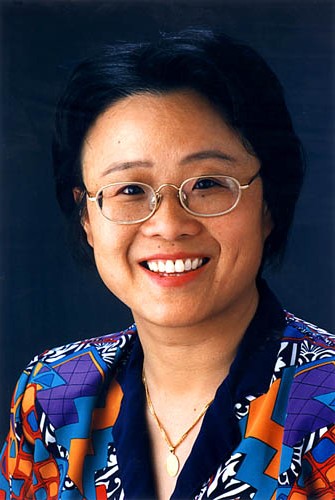
Professor Leyuan SHI
Department of Industrial & Systems Engineering, University of Wisconsin-Madison, US
Professor in the Department of Industrial and Systems Engineering at University of Wisconsin-Madison and also the founding chair of the Department of Industrial Engineering and Management at Peking University of China. She received her Ph.D. in Applied Mathematics from Harvard University in 1992. Her research interests include simulation modeling and large-scale optimization with applications to operational planning and scheduling and digital supply chain management. She has developed a novel optimization framework, the Nested Partitions Method that has been applied to many large-scale and complex systems optimization problems. Her research work has been funded by NSF, NSFC, NIH, AFSOR, ONR, MOST of China, State of Wisconsin, and many private industrial companies. Her research work has been published on journals such as Operations Research, Management Science, JDEDS, IIE Trans. and IEEE Trans. She is currently serving as Editor for IEEE Trans on Automation Science and Engineering. She served on the editorial board for Manufacturing & Service Operations Management and INFORMS Journal on Computing. She was General Chair, co-Chair, and program committee for many national and international conferences. She is also one of the inventors for a set of digital management systems including Manufacturing Execution Optimization (MEO), Maintenance Repair & Overhaul Optimization (MRO2), and Dynamic Manufacturing Critical-Path Time (DMCT). She is the recipient of the Vilas Associate Award and IEEE fellow.
Manufacturing Execution Optimization
Many manufacturing firms use aggregated data to provide scheduling/decision solutions for handling their daily operations. Given the nature of shop floor operating in real-time, these average-based scheduling systems cannot be fully executed since unexpected events will almost always occur such as rush orders, design changes, machine breakdowns, defective parts, and delivery delays etc. Currently, shop-floor responds to unexpected events via manually scheduling or by Excel, which leads to poor predictability and visibility of performance, slow response to uncertainties and market changes, and low efficiency of their production and supply chain systems.
In this talk, Manufacturing Execution Optimization (MEO) technologies developed by Dr. Shi and her team will be presented. MEO aims to bridge the gap between the top-level management data typically from ERP systems and the shop-floor operations. By establishing top floor to shop floor communication, manufacturing firms will be able to significantly improve their production and supply chain efficiency while achieving a faster response to changes and disturbances in the most time-optimal manner. MEO is developed based on Nested Partitions (NP) optimization framework. The coordination nature of the NP framework provides an efficient and effective platform for information sharing and exchange in real time. In this talk, several simulation optimization methods based on NP framework will also be discussed and a case study will be presented.
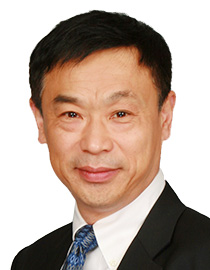
Professor Houmin YAN
College of Business, City University of Hong Kong, Hong Kong
Professor Houmin Yan is Dean of the College of Business and Chair Professor of Management Sciences at City University of Hong Kong. Prior to joining CityU he was a Professor at the Chinese University of Hong Kong. He was the Associate Director and Science Advisor for the Hong Kong Government R&D Center for Logistics and Supply Chain Management Enablibing Techonologies. He was also a tenured Associate Professor at the School of Management, University of Texas at Dallas. Professor Yan's main research areas are stochastic models, simulations, and supply chain management. He has published extensively in top-tier internation journals and has been awarded the Best Paper Prizes by professional societies such as the Production and Operations Management Society (POMs) in 2004 and Institute of Industrial Engineers (IIE) in 2005 and 2012. He consults a number of international and local enterprises. Professor Yan received his B.S. and M.S. from Tsinghua University and his Ph.D. from the University of Toronto.
Performance-Price-Ratio-Utility-Based Customer Choice Model: Market Equilibrium Analysis and Empirical Study
We consider a market in which customers make purchase decisions based on a product’s performance-price ratio utility. We first characterize the customer choice behavior and then derive the unique equilibrium in an oligopoly market with a closed-form solution. The solution reveals how the performance-price ratio utility affects a retailer’s price, market share and expected revenue in the market equilibrium, and enables us to perform comparative statics for the equilibrium. We also investigate how the equilibrium evolves with the game decision sequence, market structure and new product entry. Moreover, we calibrate the model with a large data set obtained from the China TV market, and further demonstrate that a product’s performance- price ratio shapes customer purchasing behavior in the China TV market.

Professor David D. YAO
Department of Industrial Engineering and Operations Research, Columbia University, US and
Institute for Advanced Study, City University of Hong Kong, Hong Kong
David D. Yao is the Piyasombatkul Family Professor of Industrial Engineering and Operations Research at Columbia University, where he is the founding chair of the Financial and Business Analytics Center at Columbia Data Science Institute. Author/co-author of over 200 scientific publications, he is a principal investigator of over thirty grants and contracts from government agencies and industrial sources, and a holder of eight U.S. patents. Professor Yao's teaching and research interests are in operations research, applied probability and financial engineering, focusing on the analysis, design and control of stochastic systems, such as health care systems, communication networks, production systems and supply chains, and related resource control and risk management issues.
His honors and awards include the Presidential Young Investigator Award from the National Science Foundation, Guggenheim Fellowship from the John Simon Guggenheim Foundation, Franz Edelman Award from the Institute for Operations Research and Management Sciences, SIAM Outstanding Paper Prize from the Society for Industrial and Applied Mathematics, Outstanding Technical Achievement Award from IBM Research, Great Teacher Award from the Society of Columbia Graduates, and the IBM Faculty Award.
He is an IEEE Fellow, an INFORMS Fellow, and a member of the U.S. National Academy of Engineering. He currently serves on the Board on Mathematical Sciences and Analytics of the U.S. National Academies of Science, Engineering and Medicine.
Integrated Risk-Hedging Control and Production Planning
Traditional production planning is primarily a quantity or capacity decision, which must be made at the beginning of a planning horizon before production starts. Adding a real-time control, a risk-hedging strategy, throughout the horizon can better mitigate the risk involved in demand volatility. We demonstrate how this can be done in terms of jointly optimizing both the capacity and the hedging decisions, and characterize the improvement in risk-return tradeoff achieved by the hedging strategy.
(Joint work with Liao Wang, Department of Industrial Engineering and Operations Research, Columbia University, New York, NY)
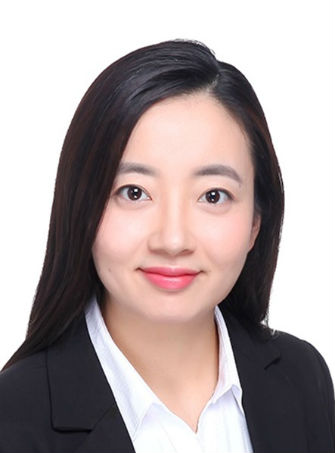
Dr. Si ZHANG
School of Management, Shanghai University, China
Si Zhang, Associate Professor in the School of Management, Shanghai University, Shanghai, China. She received her BEng from the Department of Industrial Engineering at Nanjing University in 2008, and her Ph.D. from Department of Industrial and Systems Engineering of the National University of Singapore in 2013. Her research focuses on simulation optimization, especially the design and implementation of computing budget allocation algorithms for large-scale simulation optimization problems.
A Simulation Budget Allocation Procedure for Enhancing the Efficiency of Optimal Subset Selection
Selecting the optimal subset is highly beneficial to numerous developments in simulation optimization. This presentation shows a study on the problem of maximizing the probability of correctly selecting the top-m designs out of k designs under a computing budget constraint. We develop a new procedure which is more efficient and robust than currently existing procedures in the literature. We also provide an analysis on its asymptotic convergence rate. Based on this analysis, we show that our new procedure achieves a higher convergence rate than other procedures under certain conditions. Numerical testing supports our analytical analysis and shows that the new procedure is significantly more efficient and robust.
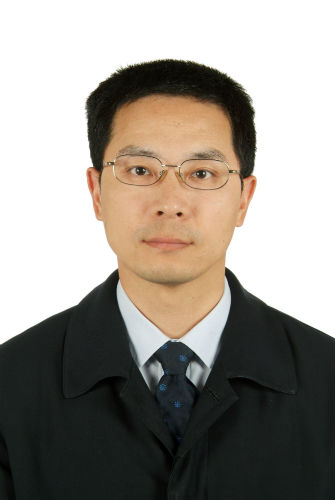
Professor Qianchuan ZHAO
Department of Automation, Center for Intelligent and Networked Systems, Tsinghua University, China
Qianchuan Zhao received the B.E. degree in automatic control in July 1992, the B.S. degree in applied mathematics in July 1992, and MS and Ph.D. degrees in control theory and its applications in July 1996, all from Tsinghua University, Beijing, China. He is currently a Professor and Director of the Center for Intelligent and Networked Systems (CFINS), Department of Automation, Tsinghua University. He was a Visiting Scholar at Carnegie Mellon University (worked with Prof. Bruce Krogh), Pittsburgh, PA, and Harvard University, Cambridge, MA, in 2000 and 2002, respectively. He was a Visiting Professor at Cornell University, Ithaca, NY, in 2006. His current research focuses on the modeling, control and optimization of complex networked systems. He has published more than 80 research papers in peer-reviewed journals and conferences. He is a recipient of the 4th HO PAN QING YI best paper award in DEDS field in the year 2000, the 9th Guan Zhao-Zhi Award best paper award in the year 2003 and the 2005 UTRC Outstanding Achievement Award, 2009 national natural science second award of China and 2013 national natural science second award by Ministry of education in China. Dr. Zhao is an associate editor for the Journal of Optimization Theory and Applications, IEEE Transactions on Control of Network Systems, the IEEE Transactions on Automation Science and Engineering, an associate editor for the joint conference CDC-ECC’05 and International Program Committee member for WODES'04. He is a senior member of IEEE.
Research opportunities arising from control and optimization of smart buildings
Control and optimization plays an important role in automation science and engineering for buildings. The area is important due to the growing threat of global warming effects to the sustainable development of human society as a whole indicated by the Paris Climate Treaty and the fact the buildings account for about 40% of total energy consumption in US, for example. There is an increasing demand to develop effective low complexity solutions that make the building control and facility maintenance problem at practice size tractable in real-time. Internet of Things (IoT) seems provide a promising technique solution to gather a lot of real-time information about building operation and relevant to building management. This provides a huge opportunity for improving building operation performance and reducing maintenance cost. In this talk, we will discuss several recent progresses in Tsinghua University just to give a sense of how this could be done. This by no means a complete list of possible benefits provided by IoT. Part of the work is supported by our industrial partners.

